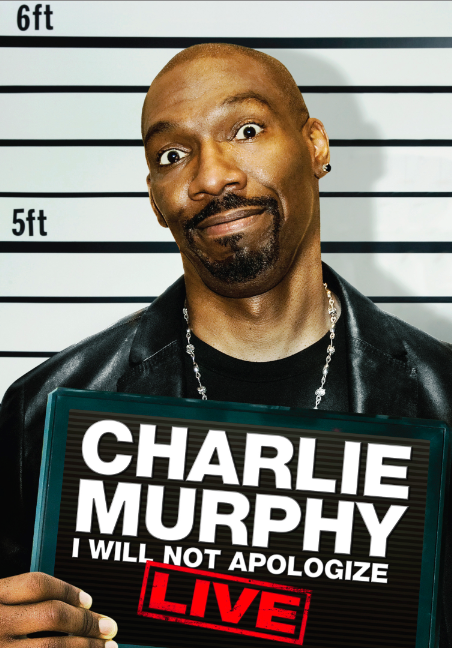(Here’s a flashback we ran a while back featuring an insightful interview with the talented comic, actor and performer, Mr. Charlie Murphy.)
Although Charlie Murphy has appeared in countless films since the late ‘80s, there’s no getting around that most fans started to really get to know him during and after his appearances on The Dave Chappelle Show. Charlie’s skits, some based on his telling of real-life encounters with celebrities while he worked security in the early days of his younger brother’s career, have become larger than the show itself. Plays of some of Charlie’s segments on Chappelle’s show have exceeded the million-view mark on Youtube.com. There are very few people who follow pop culture that haven’t heard the words “I’m Rick James bitch!” His telling of his turbulent run-ins with singer Rick James, and the outrageous basketball game between Eddie Murphy’s entourage and Prince and his Revolution, have become, as Charlie explains it, “part of the American fabric.”
Most people aren’t aware that Charlie actually got into show business before his iconic brother. In 1970, at the age of nine, through what Charlie describes as somewhat of a fluke, he was cast in the major motion picture The Landlord starring heavy hitters Beau Bridges, Lou Gossett, Jr., and Pearl Bailey. As an adult Charlie appeared in films such as Harlem Nights, Jungle Fever, CB4, The Players Club, and others. Besides his stint as a cast member on The Dave Chappelle show, he has acted on many television programs including Martin, and has done work as a voice-over actor on The Cartoon Network’s The Boondocks. His character on the show, Ed Wuncler III, has become a favorite with the network’s Adult Swim fans. The outrageous character, an out of control veteran from a privileged family- turned criminal, is played opposite Samuel L. Jackson’s voicing of Gin Rummy. Charlie has also voiced a character in the hugely successful Grand Theft Auto: San Andreas video game. Charlie has also helped pen films such as Norbit and Vampire in Brooklyn.
Today, there is no question that Charlie Murphy is a respected comedian. Some may think that his success in this space should be obvious since his brother is regarded as one of the greatest comedians of all time. However, the reality is that because of his last name, for many years, people (in and out of show business circles) had preconceived biases about what Charlie could and couldn’t do- stand up being one of those things. This may be one of the reasons why he didn’t try his hand at stand-up until his was 41 years-old, which actually happened, as he recalls, “on a dare.” The person who challenged him didn’t think he could pull it off. Charlie proved them wrong.
Charlie’s best-selling stand-up comedy DVD entitled “I Will Not Apologize” was another milestone for the talented performer. Fielding offers to bring his stand-up show to venues around the globe- he’s officially a bonafied comedic phenomenon. On the day of this interview, Charlie revealed that I happened to be the first person that he’d done an interview with since learning the news of his DVD release’s chart topping sales success. Charlie has also penned a book about his life entitled “The Making of a Stand Up Guy.” During our interview, he revealed that Chappelle had to fight for Charlie’s segments to stay in the show. He explained that at the time, some of the higher ups would demand, “less Charlie…” Today, the fans of comedy are demanding more of the man whose name they passionately pronounce as a singular word, in one fast and familiar swoop- “CharlieMurphy!” – Israel Vasquetelle
Charlie Murphy industry interview part 3 from insomniac on Vimeo.
In this segment, Charlie Murphy discusses overcoming preconceived biases that entertainment industry insiders have had about him simply because he’s Eddie Murphy’s sibling. He discusses why producers of the Dave Chappelle Show wanted less Charlie, and how he got the last laugh.
Here, the iconic comic shares his most valuable lesson learned in the entertainment industry with Insomniac Magazine. He also talks about peoples’ misconceptions about comedic actors’ skills, including those of Eddie Murphy. He also explains the importance of legend Richard Pryor.



